Aloe Vera, renowned for its extensive health benefits, has been utilized in traditional medicine for generations. With the advent of modern science, its applications have expanded into various wellness sectors, including topical creams, supplements, medicines, and cosmetics. Yet, one area that hasn’t been widely discussed is the relationship between aloe vera and male health, particularly its impact on testosterone levels.
This versatile plant is loaded with vitamins, minerals, amino acids, and numerous other nutrients. Among these, certain essential nutrients are recognized for their potential to enhance testosterone health. But the question remains: Does aloe vera increase testosterone?
This exploration seeks to illuminate whether aloe vera indeed plays a role in boosting testosterone production, examining the scientific evidence available and highlighting the research and insights on this intriguing topic. Join us as we explore the connection between aloe vera and testosterone, emphasizing the research and insights on this intriguing topic.
Does Aloe Vera Increase Testosterone?
Aloe vera packs in nutrients like aspartic acid, arginine, and magnesium, all of which are associated with the potential to ramp up testosterone levels.
Aspartic acid aids in testosterone production, arginine kick-starts its release, and magnesium prevents deficiency, collectively fostering hormonal equilibrium and potentially enhancing testosterone.
While solely relying on aloe vera might not yield immediate results in testosterone elevation, incorporating it into a balanced lifestyle—complete with regular exercise, a wholesome diet, and ample sleep—can support overall testosterone production over time.
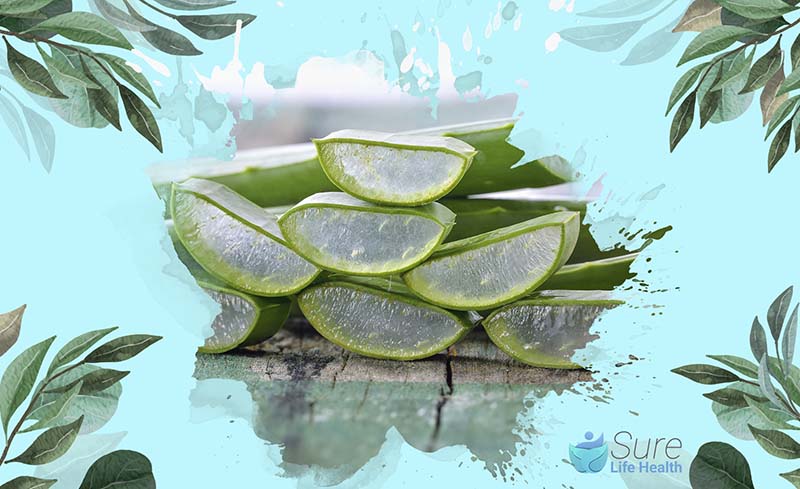
Nutritional Value of Aloe Vera
Aloe vera thrives in various climates, making it widely accessible across the globe. Its numerous health benefits stem from a plethora of nutrients packed within the plant. Understanding the nutritional composition of aloe vera is crucial to grasp its potential effects on the body, including its possible contributions to testosterone health.
Among the approximately 75 active components found in aloe vera, key nutrients include:
- Vitamins: A, B12, B9 (folic acid), choline, C, and E. Vitamins A, C, and E act as antioxidants, mitigating oxidative stress damage.
- Amino Acids: Aspartic acid, leucine, isoleucine, arginine, valine, alanine, and saponin glycosides, among others.
- Minerals: Calcium, magnesium, chromium, copper, selenium, manganese, potassium, sodium, and zinc. These minerals serve as cofactors in metabolic functions, some possessing antioxidative properties as well.
- Sugars: Various forms of sugar.
- Plant Fatty Acids: Cholesterol, β-sitosterol, campesterol, and lupeol.
- Enzymes: An array of enzymes.
3 Other Benefits That Aloe Vera Brings to You
While some claimed benefits of aloe vera for men remain under scrutiny, numerous established benefits of this plant make it a versatile addition to your health regimen.
Here are three noteworthy advantages of using aloe vera:
Helps with Oral Problems
Aloe vera gel has demonstrated efficacy in treating oral lichen planus, an inflammatory condition characterized by redness and white patches inside the
mouth. If recommended by a healthcare professional, applying aloe vera gel twice daily for up to 8 weeks may help alleviate symptoms.
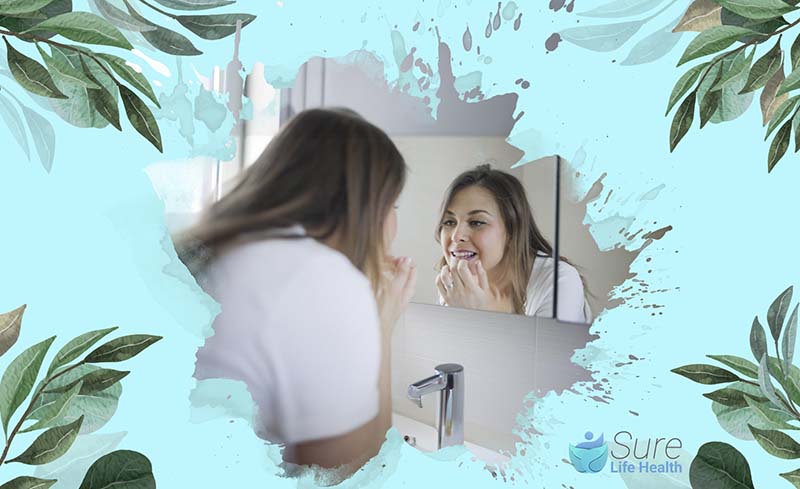
Supports Skin Inflammation
Aloe vera gel and cream can be applied daily to the skin to address various inflammatory skin conditions such as acne, dandruff, eczema, and psoriasis.
While noticeable results may take at least a month of consistent use, you can expect reduced redness, itchiness, and discomfort associated with these conditions.
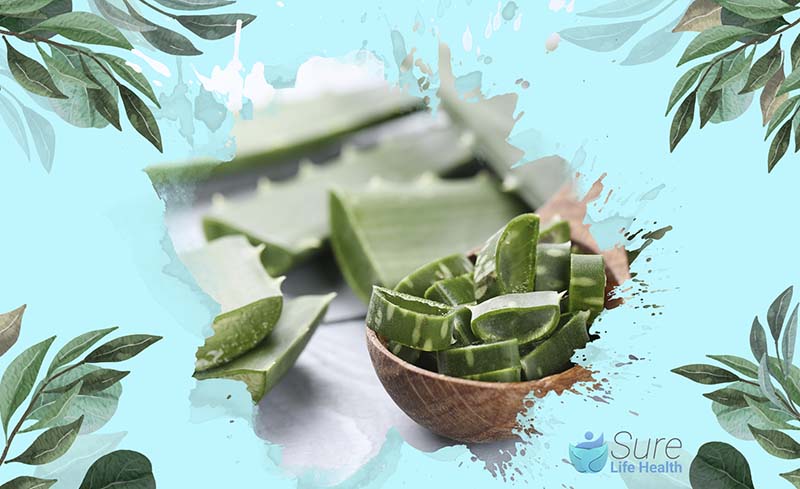
Relieves the Pain of Sunburns
Aloe vera gel is a staple in drugstores, often found alongside sunscreen products. Its soothing properties make it effective in alleviating the pain and heat of sunburns, while also potentially reducing peeling and itching as the burn heals.
Additionally, aloe vera is utilized in treating other types of first- and second-degree burns owing to its wound healing properties.
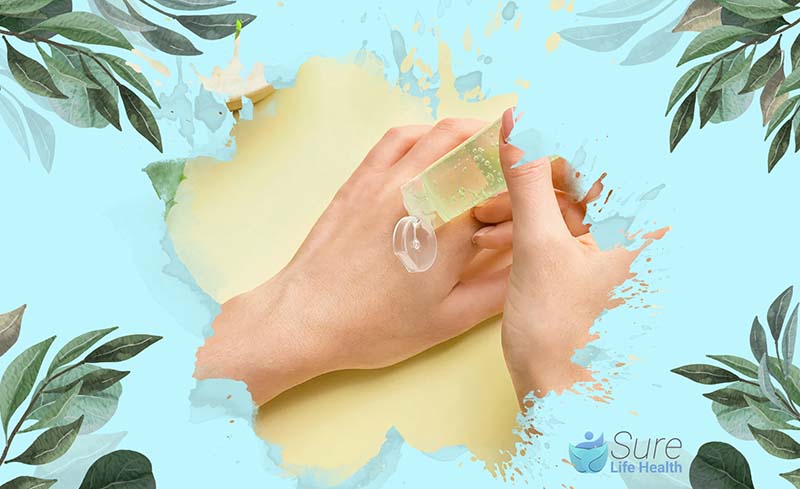
Does Aloe Vera Have Side Effects When Used?
While generally considered safe for topical use when applied according to directions, aloe vera products are not regulated by the Food and Drug Administration (FDA). Therefore, as a consumer, it’s your responsibility to use aloe vera safely and report any adverse skin reactions to your healthcare provider.
It’s advisable to avoid using aloe vera on severe burns or significant wounds, as there is some evidence suggesting that it may hinder the natural healing process of deep wounds, particularly those related to surgery.
Some individuals may experience mild itching or burning sensations as the aloe vera penetrates the skin. However, if you develop a rash or hives, it could indicate a sensitivity to the gel, and discontinuation of use is recommended.
Avoid applying aloe vera gel to infected skin, as its protective layer may disrupt the healing process and potentially exacerbate the infection, despite its antimicrobial properties.
By being aware of these potential side effects and using aloe vera cautiously, you can maximize its benefits while minimizing any risks associated with its usage. If you have any concerns or experience adverse reactions, consult with your healthcare provider for guidance.
How to Use Aloe Vera Effectively
When it comes to harnessing the benefits of aloe vera for your skincare needs, there are various options available, each with its own advantages.
- Direct Application from the Plant: If you prefer using aloe vera in its purest form, you can purchase an aloe plant from a garden shop or obtain aloe leaves from your local grocery store. Simply cut open the leaves and apply the gel directly to the area of concern.
- Aloe Vera Gel: For a convenient option without the hassle of maintaining a live plant, over-the-counter (OTC) aloe vera gel is readily available at drugstores. You can find it primarily in the sunscreen aisle or the first aid section. Apply the gel to your skin as needed for soothing relief.
- Aloe-Infused Skincare Products: Many skincare products contain aloe vera in either gel or cream form. If you have dry skin, you might find creams with aloe more beneficial. Incorporate these products into your skincare routine by applying them after washing your face in the morning and at night, following the manufacturer’s instructions.
- Aloe Vera Juice: Alternatively, if you’re interested in consuming aloe vera orally, you can opt for aloe vera juice. While the juice offers antioxidants that may help combat inflammatory conditions, it doesn’t provide the same topical benefits for treating skin burns. Aloe vera juice is also sometimes used to address constipation due to its laxative effects, which may lead to diarrhea.
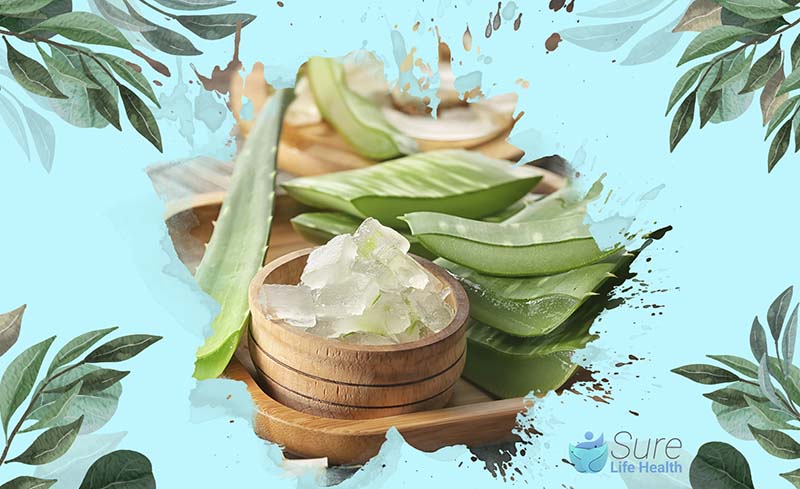
Does Aloe Vera Help Treat Erectile Dysfunction?
While certain claims on the internet suggest that aloe vera could enhance penile blood flow, there is a lack of substantial evidence to support these assertions.
Considering the potential risks involved, using aloe vera for the treatment of erectile dysfunction (ED) may not be advisable. Animal studies have indicated adverse effects on male sexual health, including reduced testosterone levels, sperm quality, and fertility.
If you are experiencing ED, you need to discuss concerns with a healthcare professional. They can provide guidance on the available treatment options tailored to your specific needs. It’s advisable to avoid relying on unproven home remedies for ED and instead seek evidence-based interventions under the supervision of a qualified medical practitioner.
Conclusion
Aloe Vera is widely celebrated for its myriad of health benefits, and there’s speculation about its ability to potentially boost testosterone levels, thanks to its content of certain testosterone-enhancing nutrients. Despite this, the nutrient density of these components in aloe vera is relatively low, making it an unreliable sole source for significant testosterone enhancement, particularly given the necessity of consuming aloe vera in moderation.
At present, the connection between aloe vera and its capacity to increase testosterone lacks substantial scientific backing, leaving its purported male health benefits in question. To establish its effectiveness in testosterone enhancement for men, more thorough and comprehensive research is essential.
Therefore, while aloe vera might contribute as an additional source of nutrition, for those specifically looking to boost their testosterone levels, opting for a specially designed testosterone-boosting supplement might be more effective. These supplements are crafted with an optimal blend of ingredients aimed at maximizing testosterone benefits. So when asking “Does aloe vera increase testosterone?” must consider the broader context of nutritional profiles and the current scientific research landscape.
Be sure to explore more insightful blogs from Sure Life Health, where we continue to shed light on the latest trends and breakthroughs in health and wellness.
Professor Gaye Cunnane, PhD, MB, FRCPI
As the Director of Health and Wellbeing at RCPI, Professor Gaye Cunnane is at the helm of initiatives aimed at enhancing the health and well-being of RCPI Trainers and Trainees. Her role extends beyond administration; she is also a respected clinical professor of rheumatology and a consultant rheumatologist at Trinity College Dublin (TCD) and St James’s Hospital. Prof. Cunnane’s medical journey began at TCD, where she graduated from medical school, and her path has been marked by both clinical and academic excellence.
After completing her basic clinical training in medicine, she embarked on PhD studies at University College Dublin and St Vincent’s University Hospital. Her research during this period was focused on prognostic markers in early inflammatory arthritis, a project that saw her collaborating with esteemed universities across Europe, including in Switzerland, The Netherlands, the UK, and Sweden.
Prof. Cunnane’s career took her to the University of California, San Francisco, where she spent three years delving into research on new treatments for lupus. Her academic prowess led her to the University of Leeds in 2001 as a senior lecturer, before returning to Ireland in 2003 to assume her current roles. She has also served as the National Specialty Director for Rheumatology training in Ireland, Programme Director for Basic Specialist Training with RCPI, and as a past President of the Irish Society for Rheumatology.
PUBLISHED ARTICLES
“Rheumatic disease differentiation using immunoglobulin G sugar printing by high-density electrophoresis”: Published in The Journal of Rheumatology, this study reflects her in-depth investigation into rheumatic diseases.
“Benefits of exercise in patients with rheumatoid arthritis: a randomized controlled trial”: This research work, highlighting the positive impact of exercise on rheumatoid arthritis, underscores Prof. Cunnane’s dedication to practical, patient-centered research.
Additionally, Prof. Cunnane has made notable contributions to the Annals of the Rheumatic Diseases, discussing early referral, diagnosis, and treatment of rheumatoid arthritis. She has also been involved in a study on the NCBI platform investigating exercise benefits in rheumatoid arthritis patients.
Professor Gaye Cunnane’s career is a testament to her commitment to improving patient outcomes in rheumatology through rigorous research, clinical excellence, and dedicated teaching. Her work continues to influence the field of rheumatology, both in Ireland and internationally.

